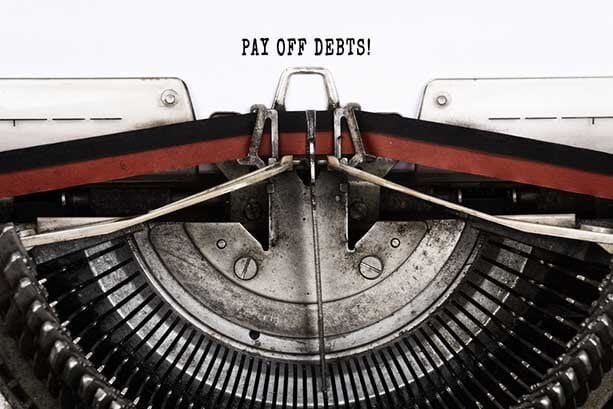A debt agreement is a contract that is legally binding between you and the parties concerned – the creditor, debt collection company or third persons involved. Consequently, each party can legally enforce the terms of the agreement against you if you don’t comply with your contract. Learn about the things to keep in mind before signing a contract that can make or break your finances. Always take serious consideration before signing a debt agreement.
The debt agreement process
When entering into a debt settlement, you have to understand that the creditor expects you to be ready to pay your debts. So, prepare to negotiate a certain sum of money or asset to pay for a percentage of your combined debt. Make sure that you can afford to pay it over a limited period of time. In debt settlement, you don’t pay your creditors directly. Instead, you make repayments to the administrator of your debt agreement.
Negotiation takes a little bit of patience and persistence because creditors also know that once they agree to a particular amount, they cannot recover the full amount of debt anymore. Knowing that they cannot get back the full amount you owe, they may give you a hard time during the negotiation process.
Legalities of your debt agreement
A valid contract is an agreement where all the parties agree to it. Meaning, there is mutual consent between you and your creditor. It must state the object of the contract—or the consideration which is typically a sum of money, or asset paid by the debtor to the creditor. The agreement must not allow you to do something illegal in return of debt forgiveness or reduction of penalties. It is also important to be mentally capacitated to enter into an agreement. You must be mentally sound and at least 18 years old to ensure that you are competent enough to enter into a binding agreement.

It is important to note that the object of the contract or the “consideration” must be something to be negotiated upon. An agreement is impartial. It gives you the perfect opportunity to discuss and compromise on the terms of the debt agreement before reaching a final contract that is acceptable to you and your creditor. But, take note that there are non-negotiable contracts, but you can still look for ways to ensure that the terms will be satisfactory not only to your creditor, but to you as well.
The agreement must not contain provisions that disagree with the contract laws in your state. You can talk to an attorney to verify the terms of your contract before signing it. Or, you can educate yourself and check whether there are illegal terms in the contract that will jeopardize not only your finances but your reputation as well.
Negotiation points
Write down your objectives for entering into an agreement. What is your desired outcome? Do you want to pay your debts in full while paying for it at a lower rate? Or, do you intend to let go of your assets to finally eliminate your debt? Before you negotiate a contract, have a specific outcome in mind. For example, if you want to extend the loan term, then you should know exactly how long you would like the loan extension to be.
Before beginning negotiations, you should know where you stand. Are you financially capacitated to respect the terms of the contract? Take note of your financial standing and the surrounding circumstances that may prevent you from abiding by your agreement. It is also important to determine your bottom line. Know the highest repayment amount you can make and the lowest one that you think the creditor can accept.

Check other options
Do you think it’s time to give up and take up bankruptcy instead? If you have no income, and you’re not in any way capable of making even the minimum repayments because of unemployment, and you can’t meet your daily needs, maybe bankruptcy is a better idea. But, it will definitely ruin your credit score, take away your assets—and probably leave you on the streets. The only upside is that your debts will be eliminated.
If you think you can still get a job, improve your business or get any additional source of money to keep up with a minimum payment each month, debt agreement is a better idea.
It is important to note that debt agreement does not refer to debt consolidation. When you consolidate loans you simply roll your existing debts to a new loan; with lesser monthly repayment, lower interest rates and fees and in one easy payment method each month. While debt consolidation companies sometimes negotiate with creditors to lower the repayment each month, there are companies that simply pay off all the loans and charges a new rate to their customers.
Is debt agreement the right solution to your financial situation right now? Talk to us today!








